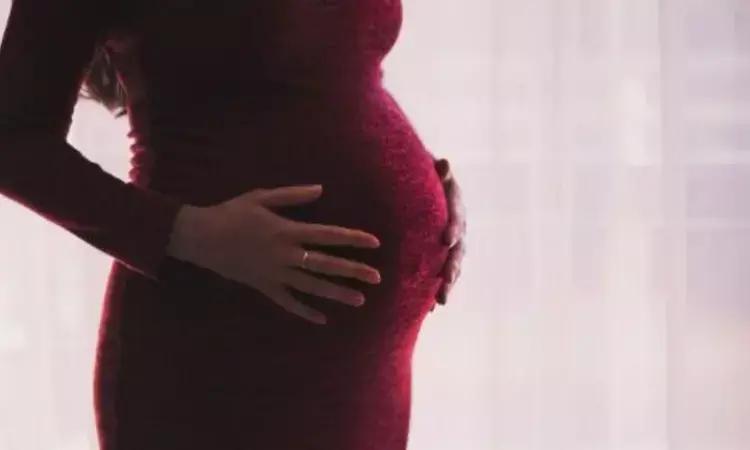Childhood Trauma May Heighten Subsequent Risk Of Pregnancy Complications
- byDoctor News Daily Team
- 25 July, 2025
- 0 Comments
- 0 Mins

Childhood trauma, such abuse, emotional neglect, and exposure to domestic violence, may heighten a woman's subsequent risk of pregnancy complications, and of giving birth to a low birthweight or premature baby, finds a pooled data analysis of the available evidence, published in the open access journal BMJ Open.
The risks of pregnancy related diabetes, high blood pressure, depression/anxiety and of giving birth to underweight and or premature babies may all be significantly higher, the analysis suggests.
While previously published research suggests that early life trauma can have a major negative impact on health in adulthood, it’s not clear if this extends to pregnancy.
To explore this further, the researchers reviewed 32 relevant studies, published between 1994 and 2022. Three out of 4 were long term (cohort) studies, with the remainder observational or comparative (case-control) studies.
Most (19) were carried out in the USA. The rest were from Canada (3), Europe (6), and other regions (4). Study participants ranged in number from 48 to 11,556.
Pooled data analysis of 21 studies showed that, overall, women who had experienced some form of childhood trauma were 37% more likely to have pregnancy complications than those who hadn’t. They were also 31% more likely to give birth to underweight or premature babies.
Further in-depth analysis showed that childhood trauma was associated with a 39% heightened risk of pregnancy related diabetes, a 59% heightened risk of antenatal depression, a 27% heightened risk of giving birth to an underweight baby, and a 41% heightened risk of preterm delivery.
There could be several direct and indirect explanations for the findings, suggest the researchers.
Childhood trauma might alter regulation of stress signalling pathways and immune system function; it might also change brain structure and function; or it might speed up cellular ageing, they say.
And previously published research suggests that it’s also associated with a greater likelihood of risky behaviours in adulthood, including substance misuse, physical inactivity, and poor diet, all of which may influence the risk of pregnancy complications and outcomes.
The researchers acknowledge that most of the included studies were from high income western countries so the findings may not generalisable elsewhere, nor were they able to assess the potential impact of different types of childhood trauma.
But they nevertheless conclude: “The results suggest that exposure to [childhood trauma] increases the risk of pregnancy complications and adverse pregnancy outcomes. The identification of women exposed to [these experiences] and personalising their care may provide opportunities to improve maternal and child mental and physical health.”
And they emphasise: “Beyond screening for [childhood trauma], our findings emphasise the importance of preventing [these events] in children to reduce immediate impacts as well as intergenerational transmission.”
Reference:
Mamun A, Biswas T, Scott J, et alAdverse childhood experiences, the risk of pregnancy complications and adverse pregnancy outcomes: a systematic review and meta-analysisBMJ Open 2023;13:e063826. doi: 10.1136/bmjopen-2022-063826.
Disclaimer: This website is designed for healthcare professionals and serves solely for informational purposes.
The content provided should not be interpreted as medical advice, diagnosis, treatment recommendations, prescriptions, or endorsements of specific medical practices. It is not a replacement for professional medical consultation or the expertise of a licensed healthcare provider.
Given the ever-evolving nature of medical science, we strive to keep our information accurate and up to date. However, we do not guarantee the completeness or accuracy of the content.
If you come across any inconsistencies, please reach out to us at
admin@doctornewsdaily.com.
We do not support or endorse medical opinions, treatments, or recommendations that contradict the advice of qualified healthcare professionals.
By using this website, you agree to our
Terms of Use,
Privacy Policy, and
Advertisement Policy.
For further details, please review our
Full Disclaimer.
Tags:
Recent News
DME Gujarat extends PG Ayurveda, Homeopathy round...
- 05 November, 2025
NEET counselling: CENTAC publishes round 3 provisi...
- 05 November, 2025
Marksans Pharma UK arm gets marketing nod for Exem...
- 05 November, 2025
Zydus Wellness net sales up by 31 percent in Q2 FY...
- 05 November, 2025
Daily Newsletter
Get all the top stories from Blogs to keep track.


0 Comments
Post a comment
No comments yet. Be the first to comment!